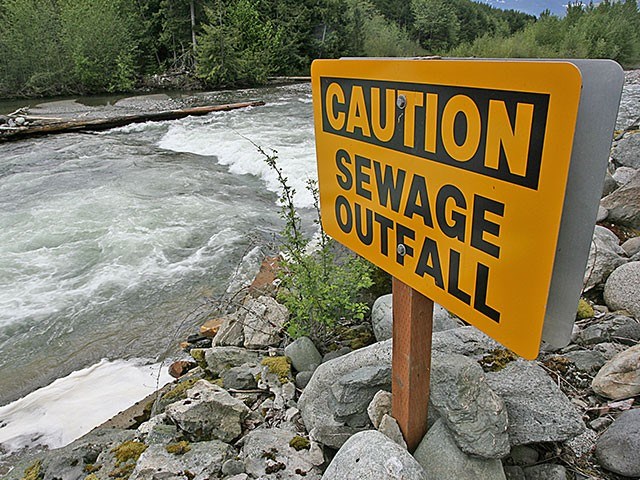The municipality has just eight months to spend $20 million on the sewage plant upgrades if it is to realize all of its potential grant money.
“Certainly some of that funding is at risk if we can’t move fast enough,” admitted John Nelson, the municipality’s capital projects manager at Monday’s council meeting.
With that in mind, council wasted little time Monday night unanimously approving a $28 million construction contract for a large portion of the plant upgrades.
The contract is 11 per cent below engineering estimates. That’s particularly good news for Councillor Nancy Wilhelm-Morden who was instrumental in encouraging council to abandon a public-private partnership (P3) for the upgrades.
She maintained that position against the initial recommendation from staff and despite warnings that it could push up the costs of the project.
Council ultimately abandoned the P3, bowing to public pressure.
“Given what was said last year during the whole P3 process — how we were warned that if we didn’t go with the P3, construction costs were escalating at a quarter of a million bucks a month and that we’d probably have a reduced design and environmental standards would be at risk — none of that turned out to be the case,” said Wilhelm-Morden after Monday’s meeting.
“The dire warnings we were given that if it didn’t go that way it was all going to go to hell in a hand basket turned out not to be true.”
The work will begin in early August with the major parts of the project scheduled to be in the ground by the end of March 2008.
Nelson explained that as long as they can complete $20 million worth of work by that date, Whistler would receive $12.6 million in grant money from the federal and provincial governments.
It won’t be easy. Conversations with senior levels of government have revealed that the date is firm as outlined in a 2003 agreement under the Canada/Provincial Infrastructure Program.
“We are challenged by it,” said Nelson.
The $12.6 million from the federal and provincial governments was approved in 2003, when the sewage treatment plant project was estimated to cost a total of $20 million. That cost estimate was later revised to $26 million but the grant was not increased.
Since then costs have increased substantially. The sewage treatment plant upgrade is budgeted at $33 million in the current Five Year Financial Plan but the most recent estimate puts the total cost at $45 million.
It is not yet clear where the additional $12 million will come from to pay for the increase.
But a portion of the $45 million budget, Nelson explained, will pay for Whistler’s new composting facility and the district energy system, which will be used to heat the athletes’ village.
“(The budget) is fairly close and fairly complicated,” said Nelson, in response to questions from Wilhelm-Morden about where the extra $12 million was coming from.
Those increases are a result of construction cost escalations in the range of 10 to 12 per cent.
Concerns about potentially more budget increases prompted questions from Councillor Eckhard Zeidler about the $28 million contract with Graham Infrastructure and the risk of that contract going over budget.
“(There are) very limited risks on that amount,” replied Nelson.
“It is essentially a fixed price contract.”
Graham Infrastructure, a company which has completed similar projects at the Kamloops Water Treatment Plant and portions of the Seymour Capilano Water Treatment Plant, was the lowest of five bidders on the project. The highest was $10 million more than Graham’s bid.
This tender takes in the bulk of the work but does not include pre-purchased equipment, preliminary construction activities at the plant and future smaller contracts at the site such as developing a new entrance, re-vegetation and landscaping.
The upgrades will not only add capacity to the plant and address the odour issues in the south end of town, but also allow Whistler to use more sustainable sewage treatment processes.
The plant will use a biological nutrient removal (BNR) treatment process that will eliminate the use of chemicals to remove nutrients and reduce the impacts on the Cheakamus River, which captures the treated effluent.




